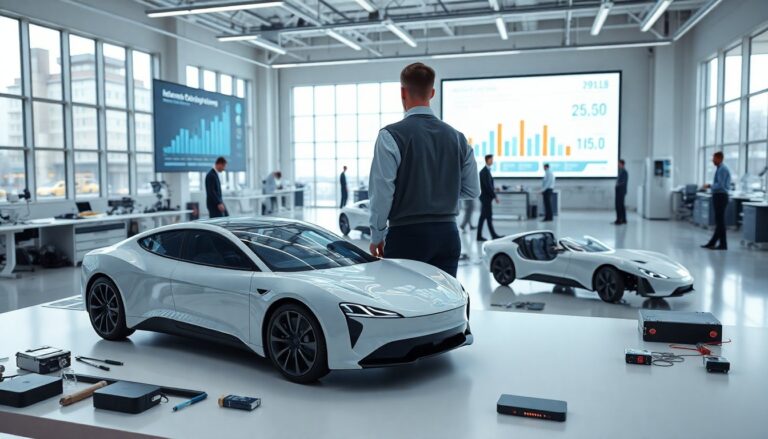Argomenti trattati
The automotive industry has experienced a profound transformation over the past few decades. This evolution ranges from the inception of the automobile to the contemporary era characterized by electric and autonomous vehicles. As technological advancements continue to reshape this landscape, it is essential for both consumers and industry stakeholders to understand these changes.
Key advancements in automotive technology
One of the most significant shifts in the automotive sector is the integration of technology into vehicles. Recently, the emergence of electric vehicles (EVs) has begun to redefine our approach to transportation. Manufacturers such as Tesla, Nissan, and Chevrolet have taken the lead, producing models that not only minimize emissions but also improve driving performance.
The rise of electric vehicles
Electric vehicles (EVs) utilize electric motors instead of traditional internal combustion engines. This shift significantly reduces greenhouse gas emissions, contributing to environmental sustainability. The benefits extend beyond ecological concerns, encompassing lower operating costs and decreased reliance on fossil fuels. As advancements in battery technology progress, the range and efficiency of EVs are set to improve, enhancing their attractiveness to consumers.
Challenges facing the automotive industry
While advancements in automotive technology are promising, the industry confronts several significant challenges. A primary concern is the development of charging infrastructure for electric vehicles. Automakers are investing substantially in production; however, a comprehensive network of charging stations is crucial for encouraging the widespread adoption of EVs. The existing infrastructure gap may undermine consumer confidence and impede the transition to electric mobility.
Advancements in autonomous driving technology
Autonomous driving technology is rapidly evolving and has the potential to transform road safety and transportation. Companies such as Waymo and Uber are leading this innovation, with self-driving vehicles designed to minimize accidents resulting from human error. However, the path toward fully autonomous vehicles involves navigating significant regulatory challenges and ethical considerations.
The future of automotive technology
Looking ahead, the future of automotive technology appears promising, with several trends poised to shape the industry. The integration of advanced driver-assistance systems (ADAS) is expected to become standard in new vehicles, enhancing both safety and convenience. Features such as adaptive cruise control, lane-keeping assist, and automatic emergency braking are likely to become commonplace.
Connectivity and the Internet of Things
The emergence of connectivity in vehicles, commonly known as the Internet of Things (IoT), is reshaping how drivers engage with their cars. Today’s vehicles are increasingly integrated with internet capabilities, facilitating real-time traffic updates, remote diagnostics, and over-the-air software enhancements. This connectivity not only enhances the driving experience but also allows manufacturers to collect critical data that can improve vehicle performance and reliability.
The automotive industry is currently experiencing a significant transformation. Advancements in electric and autonomous technologies are reshaping the landscape. However, challenges related to infrastructure and regulation persist. Stakeholders must adopt agile and innovative approaches to navigate these changes. The potential for the future is vast. As technology progresses, the automotive sector is poised for a safer, more sustainable, and interconnected transportation environment.

